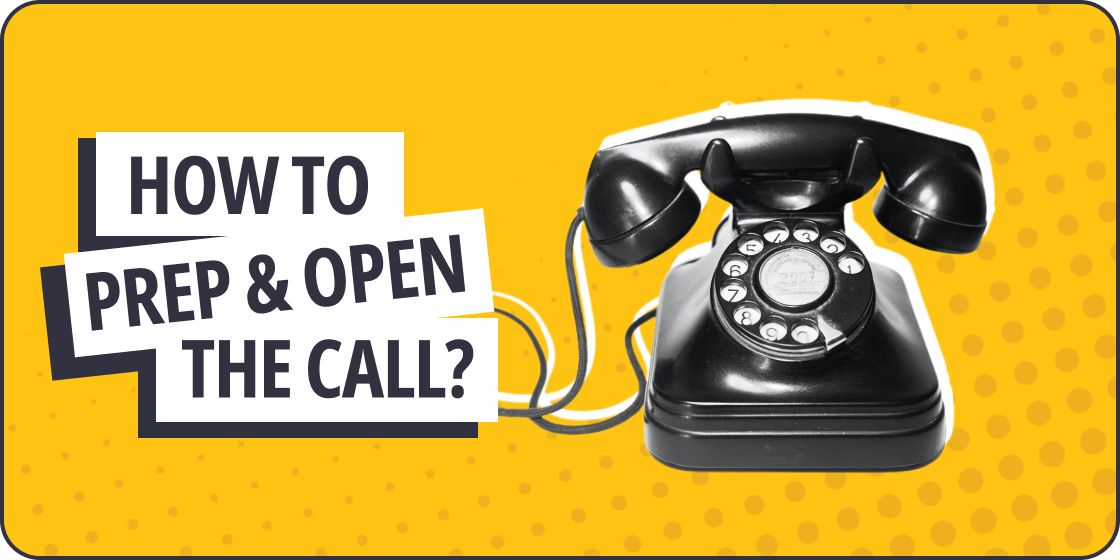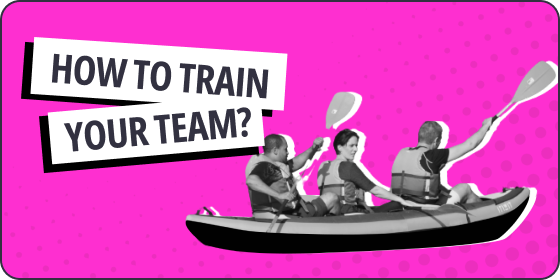Should I get on calls and help close deals?

This is a controversial subject, as there are multiple schools of thoughts, but generally it is not best practice to get on your sales teams calls to help them close deals. Ultimately, it’s a very short sighted strategy. Allow us to present a few scenarios to help get the point across.
Scenario 1
Let’s imagine you have a new starter on your Team, and they are about to jump on one of their first closing calls. Of course, you want success for them, of course they want success for themselves, so there’s an even bigger justification for you being on the call. However, it’s much better to let them fail by themselves, rather than use you as a crutch to help them close the deal. Yes, you will get immediate buy in for closing a deal for them, and they will love you for it, although are you really setting them up for success? All the studies outside of sales tell us that when we fail or get things wrong, it gives us the ability to learn from our failures and retain that information. Even if the salesperson asks you to be on the call and tries to justify it, the pro move would be to say no. There are so many better ways to set them up for success. Prior to the call, you can run multiple role plays with them, you can throw every objection in the book at them. By doing this, the salesperson is ready for anything that comes their way with their prospect. You can also make a solid plan for the call, and write a step by step process for the call which will give them so much more confidence. “If you give a man a fish, they will eat for a day. If you teach a man to fish, they will eat for a lifetime”. This expression really hits home our point here.
Scenario 2
Now let’s imagine this same new starter 6 months into the role, but you have been getting on all of their closing calls and assisting them in closing their deals. They have become entirely dependent on you. They don’t even know if they can close deals by themselves. This person is not self-sufficient, and arguably more of an SDR than a salesperson. Your goal as a leader is to help a salesperson achieve their full potential. How can you achieve this is if you don’t give them the opportunity to shine? This salesperson who you are helping to close their deals, they don’t prep the way they need to, they don’t attempt to handle the difficult areas of their calls, because they know you are there to bail them out. What’s even more frustrating for that salesperson, is that they will never know how good they can be. Yes, they have probably made more money in their first 6 months than they would without you on their calls, but they are about to get hit by a truck. One day, when they are 8 months into the role, you’re going to pull them aside, and tell them that you are not joining their big closing call later that afternoon. They are going to panic. They are now more than likely a fully ramped sales exec with a respectable quota, that cannot close deals by themselves. You see the problem with that right? They get on that call in the afternoon, and they fail, because you’ve been doing the heavy lifting on their calls. Now they start to question everything. You’ve just created a very difficult situation for yourself. Now you have 2 choices, you either get back on their calls helping them to close deals, or you let them fail on more calls, and start to put in the time to train them which should have happened months ago. By jumping on their calls for the first 7 months, you have stunted their growth.
It makes so much more sense to let a newer person fail earlier in their role, so that they can learn from it. It’s so much easier to coach them to close their own deals, because the second they close their own first deal, they will become empowered. They will believe in themselves and their capabilities so much more moving forwards. If they had to lose a few deals first to get there, that’s totally fine. Usually in these early months they are more likely carrying a lower quota during their ramp up period. It makes so much sense to fail more when they are a lower risk against your overall number. The top leaders we have worked with over the years get the new members on their team and role play like crazy in their first few months. Challenge them, put them through the paces in the training room, so that they feel so much more confident when speaking to real prospects. That’s how you set someone up for success.
I think a lot of leaders have been guilty of jumping on calls to help close deals, but they only have to do that because they haven’t invested the time to get their salesperson ready. Most sales leaders are given a leadership position because of their topflight sales ability, which means they know how to close deals. Now teach your Team how to do it. Imagine a Team were a leader creates an entire team as mirror versions of themselves and their knowledge. What a rockstar Team that would be? How much fun would it be to be on that Team of closers challenging each other and competing against one another for success. Sales Leadership is hard. There are no short cuts. Jumping on a new persons call and closing a deal for them is a short cut. While you might get a quick win, you’re just giving them a fish. They signed up to learn how to fish, so teach them. That’s what topflight sales leaders do.



























